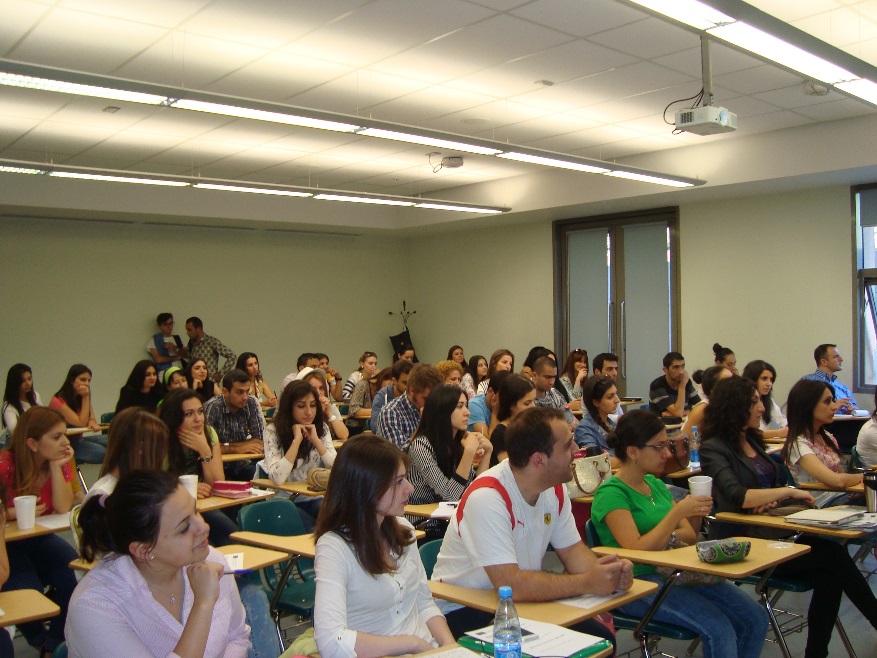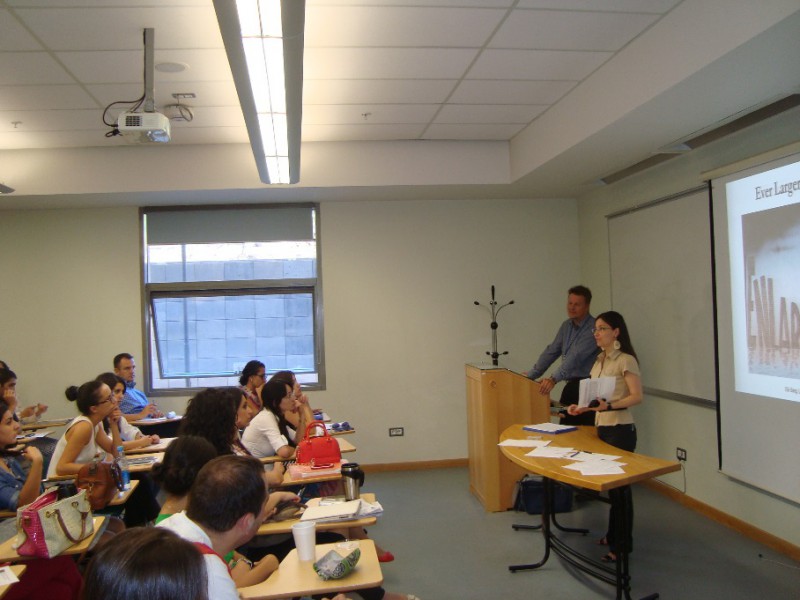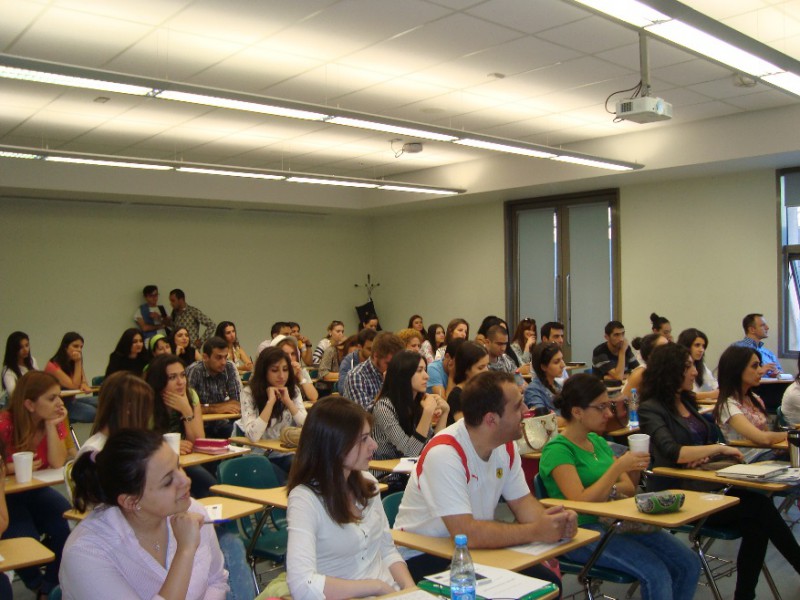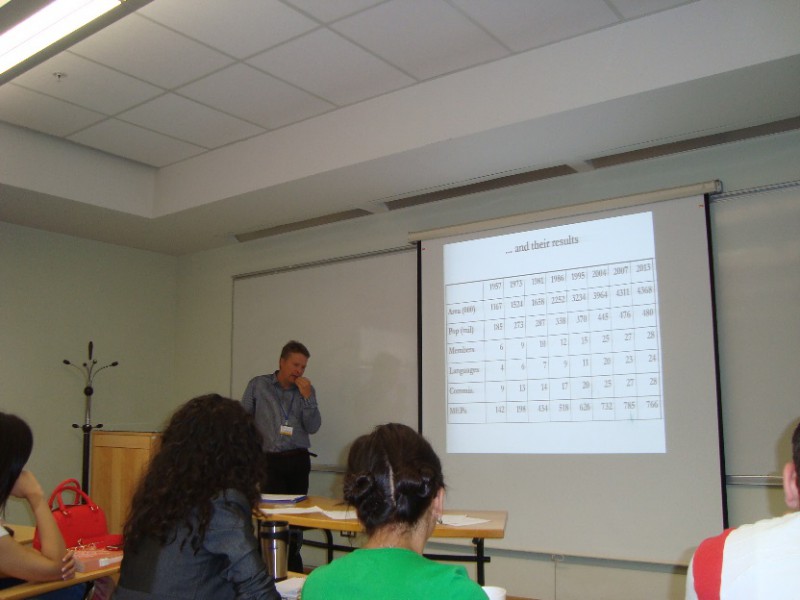
Guest lecture Professor Eiki Berg spoke on EU Enlargement & Neighborhood Policies at AUA
2 min readYEREVAN – On September 17, 2014, the American University of Armenia (AUA)’s Political Science and International Affairs (PSIA) program hosted a Jean Monnet guest lecture on the EU Enlargement and Neighborhood Policy. The lecture was delivered by Professor Eiki Berg from the University of Tartu in Estonia. It was organized by Dr. Syuzanna Vasilyan, Jean Monnet Chair of European Studies and PSIA Assistant Professor.
Dr. Vasilyan introduced the lecturer and stated that the lecture is highly timely provided two major political events pertaining to the EU, the first one being the ratification by the Ukrainian Parliament of the EU-Ukraine Association Agreement on September 16th and the second one being the Scottish referendum for independence from the United Kingdom to be held on September 18th. The former mattered for the EU externally, the latter – internally.
Dr. Berg expanded on the history of EU enlargement, the differences among groups of countries and issues concerning specific candidates, e.g. the time it has taken from the formal application to becoming a member. The diversity of the Union was highlighted with reference to the languages, political interests, etc. Dr. Berg also elaborated on the criteria for accession, the institutions involved and the procedures. The Western Balkan countries were delineated in terms of their progress in the negotiations with the EU. Turkey was emphasized as standing out as a most problematic case in terms of its Europeanness defined through geography and religion, the dispute with the EU-member state Cyprus, with only one chapter of the acquis having been closed and decreasing public support for EU membership. Dr. Berg drew parallels and distinctions between the candidates and neighbors. Most importantly, he asserted that enlargement is the foreign policy of the EU.
Dr. Vasilyan stated: “While the rationale, means and objectives of the policies are similar, in contrast to candidate countries, there is no pledge on part of the EU to the eastern neighbors as far as potential membership is concerned. Thus, the impact differs. Among the Eastern Partnership countries some have shown commitment to be more closely integrated ‘with’ the Union by signing/ratifying the Association Agreements and Deep and Comprehensive Free Trade Agreements, i.e. Moldova, Georgia and Ukraine. My upcoming article on the ‘Multi-Speed Eastern ‘Neighborhood’’ of the EU analyzes these developments.”
Eiki Berg is Professor of International Relations at the University of Tartu in Estonia. Since 1996, he has worked at the Institute of Government and Politics, generally focusing on critical geopolitics and the studies of borders and border regions, in particular. Among his recent research activities, his studies about territoriality and sovereignty issues in contested states have gained more prominence. He has published widely in leading peer-reviewed journals on bordering practices, identity politics and power-sharing in post-conflict settings. He is co-editor of Routing Borders Between Territories, Discourses and Practices (Ashgate, 2003) and Identity and Foreign Policy: Baltic-Russian Relations and European Integration (Ashgate, 2009). During the years 2003-2004 he served as a Member of Parliament (MP) in Estonian Parliament and observer to the European Parliament, EPP-ED faction, Committee on Foreign Affairs, Human Rights, Common Security and Defense Policy.





